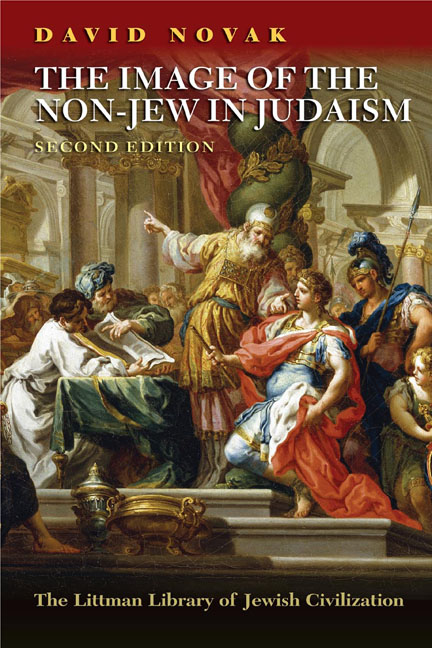Book contents
- Frontmatter
- Dedication
- Preface
- Acknowledgments
- Contents
- Chapter Summaries
- 1 The Origins of the Noahide Laws
- 2 The Law of Adjudication
- 3 The Law of Blasphemy
- 4 The Law of Idolatry
- 5 The Law of Homicide
- 6 The Law of Sexual Relations
- 7 The Law of Robbery
- 8 The Law of the Torn Limb
- 9 Aggadic Speculation
- 10 Maimonides’ Theory of Noahide Law
- 11 Albo's Theory of Noahide Law
- 12 Late Medieval Developments
- 13 Moses Mendelssohn and his School
- 14 Hermann Cohen and the Jewish Neo-Kantians
- 15 Conclusion
- Afterword
- List of Abbreviations
- Notes
- Bibliography
- Index
6 - The Law of Sexual Relations
- Frontmatter
- Dedication
- Preface
- Acknowledgments
- Contents
- Chapter Summaries
- 1 The Origins of the Noahide Laws
- 2 The Law of Adjudication
- 3 The Law of Blasphemy
- 4 The Law of Idolatry
- 5 The Law of Homicide
- 6 The Law of Sexual Relations
- 7 The Law of Robbery
- 8 The Law of the Torn Limb
- 9 Aggadic Speculation
- 10 Maimonides’ Theory of Noahide Law
- 11 Albo's Theory of Noahide Law
- 12 Late Medieval Developments
- 13 Moses Mendelssohn and his School
- 14 Hermann Cohen and the Jewish Neo-Kantians
- 15 Conclusion
- Afterword
- List of Abbreviations
- Notes
- Bibliography
- Index
Summary
Introduction
Noahide law also prohibits certain sexual relations, in particular, incest, adultery, homosexuality and bestiality. In the baraita in the Talmud this prohibition is associated with the word “saying” (l'emor) which is taken in the sense of its use in Jer. 3:1, “saying if a man send away his wife.” The implication is that this “sending away” is for sexual misconduct. The association is mnemonic, and nothing more is made of it.
The general name for this legal grouping is gilui arayot, derived from the list of forbidden sexual relations in Lev. 18. In Leviticus, these relations are referred to euphemistically as “uncovering nakedness” (galoh ervah). This termis, for the most part, used in connection with forbidden consanguineous relations, primarily incest.
Incest
Philo presents two reasons for the prohibition of incest. First, he discusses it regarding parent–child relations:
What form of unholiness (anosiourgēma) could be more impious than this: that a father's bed, which should be kept untouched as something sacred (hōs hieran), should be brought to shame: that no respect should be shown for a mother's aging years … Even among the Greeks these things were done in the old days in Thebes in the case ofOedipus the son of Laius. They were done in ignorance, not by deliberate intention (ouch hekousiōgnōme), and yet the marriage produced such a harvest of ills that nothing was wanting that could lead to such misery.
Secondly, he discusses sibling incest:
Why hamper fellow-feeling (koinōnias) and intercommunion of men with men (pro tous allous anthrōpous) by compressing within the narrow space of each separate house the great and goodly plant which might extend and spread itself over continents and islands and the whole inhabited world? For intermarriages with outsiders creates new kinships.
Philo is not advocating marriages between Jews and gentiles, a practice he explicitly condemns, but rather advocating each generation breaking out of the consanguineous circle of the immediate family when marrying.
Philo's twofold discussion of incest offers two different reasons for the prohibition. Incest between parents and children (vertical or transgenerational incest) is prohibited because it violates the respect children owe their parents.
- Type
- Chapter
- Information
- The Image of the Non-Jew in JudaismThe Idea of Noahide Law, pp. 113 - 126Publisher: Liverpool University PressPrint publication year: 2011

